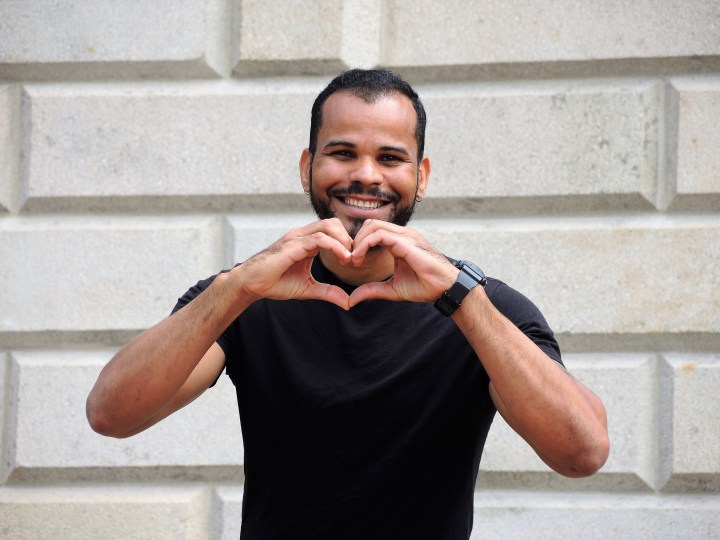
Sweden’s immigration debate: view from the street
Share Now on:
Sweden’s immigration debate: view from the street

Sweden is regarded as one of Europe’s most welcoming countries for refugees and migrants.
In five years, Scandinavia’s largest economy has accepted more than 400,000 asylum seekers and relatives of previous immigrants, many of whom were fleeing war zones.
Sweden’s generous social security policies have helped — high taxes mean people living in Sweden enjoy generous social security benefits.
However, the influx of immigrants has placed extra pressure on social services and led people to question the sustainability of Sweden’s cradle-to-grave social insurance model.
Straddling the border with Denmark, Malmö has welcomed many migrants in Sweden. We asked some people in the city for their thoughts on immigration.
Cecilia and Hugo Skorup, 36 and 4½

Occupation: Payroll manager for Sjöbo municipality
Born in: Sweden
“Much of the money that we pay in taxes, we give back to people who need it. So there aren’t too many differences between the rich and poor. But I feel like the Swedish people tend to not be as helpful [now] as we have been though history. I don’t want my son to grow up and see that because of where you come from, you can’t do certain things in life. I want him to feel like every human being is equal.”
Stefan Karlsson, 57

Occupation: Unemployed
Born in: Sweden
“We try to give people who come here a good life because there are many who came from war zones. But some of them have to help themselves, as well. Many do, but some don’t want to learn the language and get into the Swedish life. You have to do your best to learn, not just to get everything for free. Also, if we take too many [immigrants] at the same time, it’s hard to take care of everybody. We are a small country, we do our best, but it’s not that easy.”
Adilson Silve, 33

Occupation: Unemployed
Born in: Brazil
“I came to Sweden two years ago to teach capoeira, which is a type of martial art. But it’s difficult to get a job or set up a business. I’ve had a lot of help from the state. For families and kids, it’s an amazing country to live in. When you have a baby, they give you money to pay for bread, milk and diapers. But I don’t feel part of Sweden yet. I’m frustrated. The language is very hard. I learned English and Spanish by myself, but they way they teach Swedish is very difficult. People are polite, but I feel they don’t understand that immigrants come to look for a better life. I’ve even started to hate it here.”
Madina Abdul Waheb, 24

Occupation: Helper at a middle school
Born in: Afghanistan
Views: I study, I work and I feel the same as every other person in Sweden. Swedes are good people. But I still don’t feel like I belong in this country. It feels better when you are in your own country. The first question people ask me is always: where do you come from? Or: where are your parents from? America was made by immigrants. But here, the Swedish people have been here for hundreds or thousands of years, and even if you want to call yourself a Swede, people say no, you don’t look Swedish, you are not Swedish.
There’s a lot happening in the world. Through it all, Marketplace is here for you.
You rely on Marketplace to break down the world’s events and tell you how it affects you in a fact-based, approachable way. We rely on your financial support to keep making that possible.
Your donation today powers the independent journalism that you rely on. For just $5/month, you can help sustain Marketplace so we can keep reporting on the things that matter to you.


















